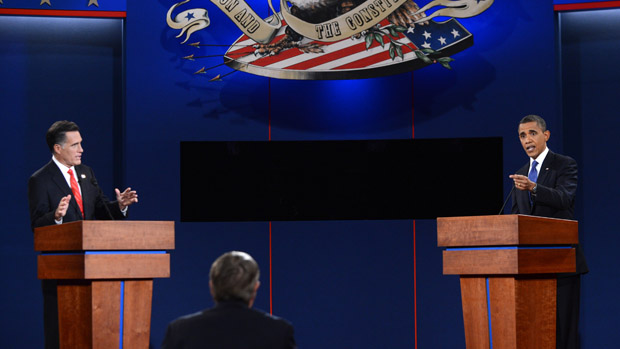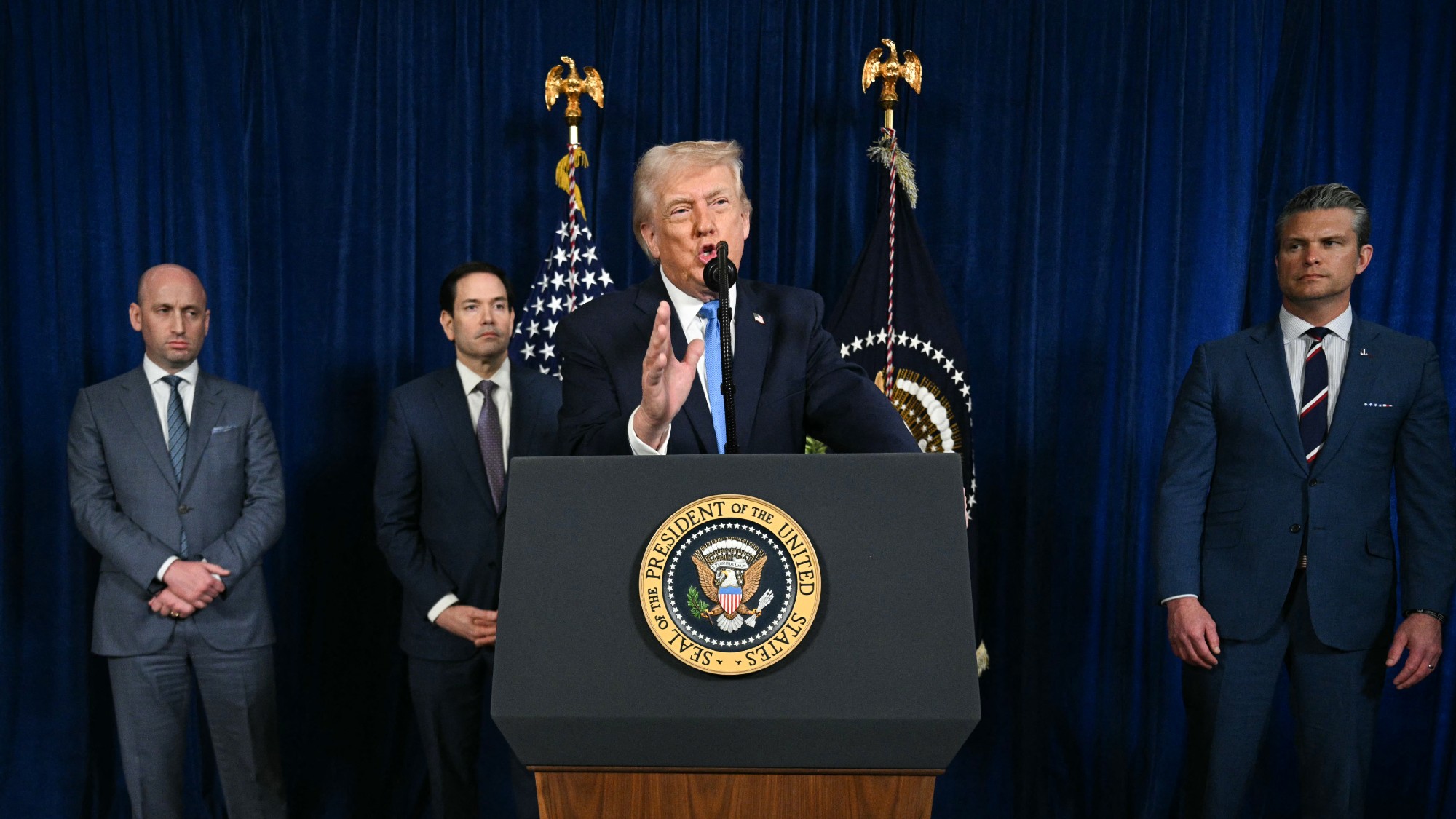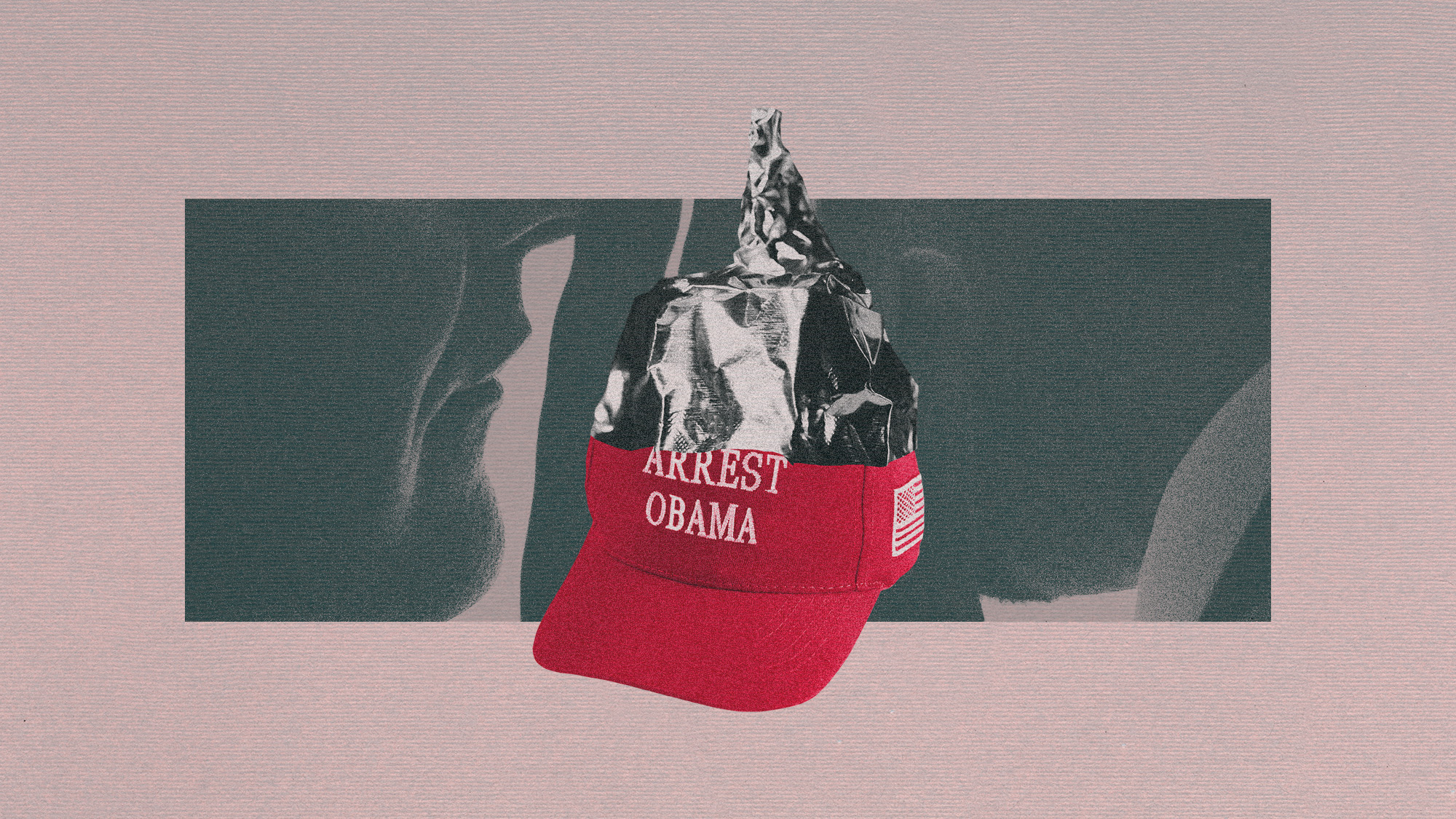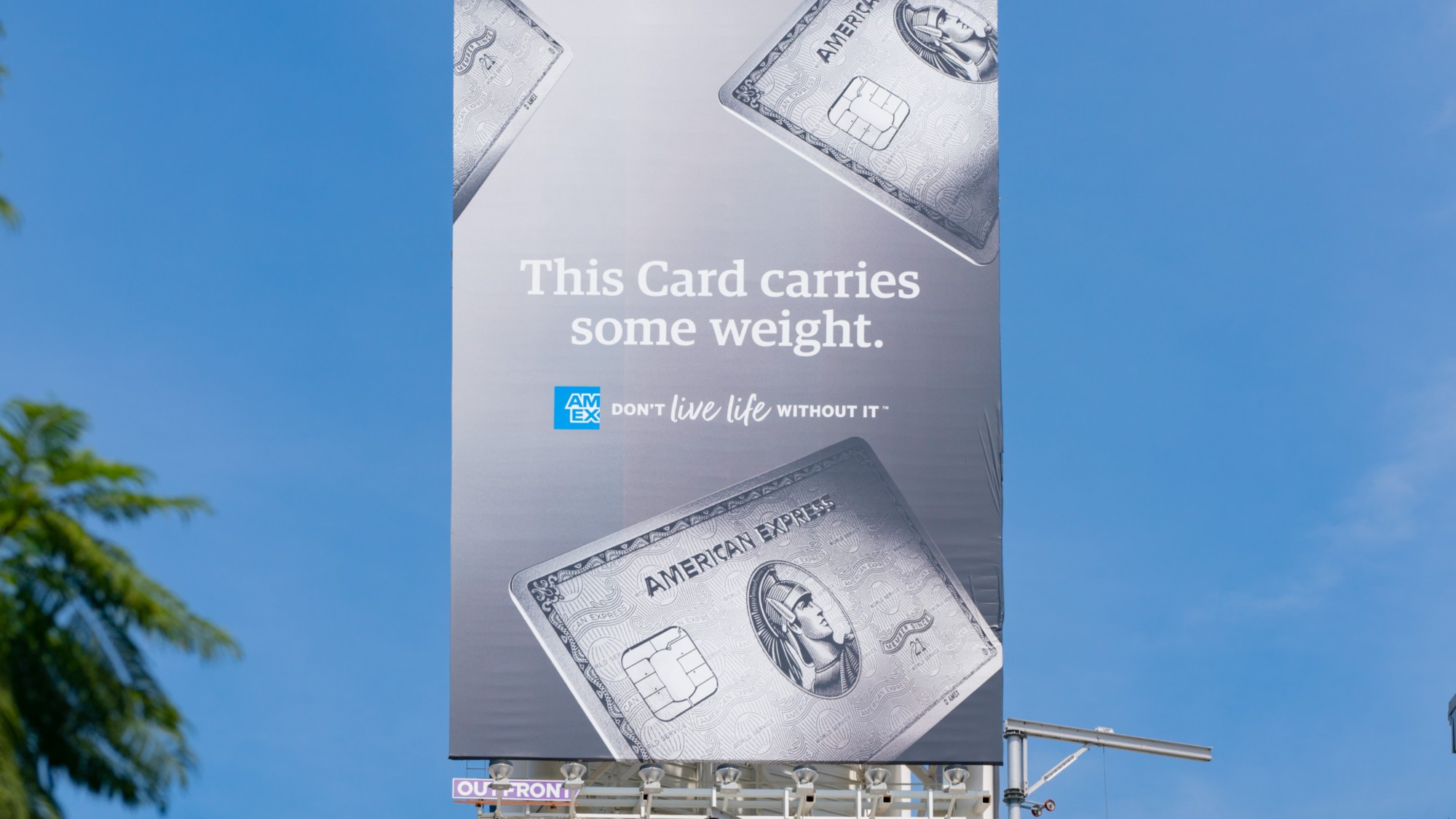Romney thrashes Obama in first debate, but no game changers
Obama seems tired and irritable as Republican’s combative performance gives him big debate win

A free daily email with the biggest news stories of the day – and the best features from TheWeek.com
You are now subscribed
Your newsletter sign-up was successful
MITT ROMNEY has emerged as the clear winner of last night's first presidential debate in Denver, trouncing President Barack Obama by an almost three-to-one margin in snap polls taken in the immediate aftermath of the 90-minute set-piece event.
The Republican challenger was aggressive and combative from the outset, taking the fight to a tired and irritable Obama. Veteran Democrat strategist James Carville told CNN that the President "gave you the impression that this whole thing was a lot of trouble".
Although few felt the debate contained the game-changer that would shift the race in Romney's favour, it will at least serve as a fillip for Republican morale after weeks of Romney gaffes and poor ratings.
The Week
Escape your echo chamber. Get the facts behind the news, plus analysis from multiple perspectives.

Sign up for The Week's Free Newsletters
From our morning news briefing to a weekly Good News Newsletter, get the best of The Week delivered directly to your inbox.
From our morning news briefing to a weekly Good News Newsletter, get the best of The Week delivered directly to your inbox.
Poll guru Nate Silver tweeted "I'd be surprised if tonight didn't move the head-to-head polls some (in Romney's direction)."
"In the end there were no zingers; no knockout blows; no major blunders," wrote Gary Younge in The Guardian. "But there was a winner: Mitt Romney. After several reboots and roll-outs he finally, finally found his voice."
Obama had his moments, like on Romney's tax plans, but he lost the debate on style, and failed to even highlight issues thought to be Romney's Achilles’ heel. "Not once did [Obama] mention Bain Capital or Romney's 47 per cent blunder, even when the questions gifted them to him," said Younge.
Chris Matthews, a liberal talk show host on MSNBC, said despairingly: "I don't know what he was doing out there. I know he likes to say he doesn't watch cable television but maybe he should start. I don't know how he let Romney get away with the crap he threw at him tonight about social security."
A free daily email with the biggest news stories of the day – and the best features from TheWeek.com
Remarking on the president's tired demeanour, Roger Simon on Politico offered "one word of advice for Obama before the next debate: caffeine. I had a Pepsi right before the debate started Wednesday night and was tingly for the next 90 minutes. President Obama looked like someone had slipped him an Ambien."
Daily Telegraph blogger Tim Stanley said that "Romney humiliated Obama in the debate", adding that the president fell to pieces without an autocue to tell him what to say and his performance “was a mess”.
"By contrast, Mitt Romney was a human dynamo. This is why the Republicans nominated him: he’s great at debating and he doesn’t look mad," Stanley enthuses. "Mitt was funny, enthusiastic, almost gleeful.
Anything worth remembering from the debate came from Romney’s lips."
Douglas Schoen on Fox News was more moderate, saying that "Romney didn't close the deal in Denver. There were no knock outs. But he made it clear he has an alternative vision. He wasn't seen as extreme, he avoided that attack. But he failed to outline a jobs program or a specific plan to revitalise the economy."
Commenting on the debate's format, Alessandra Stanley in the New York Times said this "was a glaringly public confrontation that looked oddly intimate and personal. And that may help explain why tens of million of people tune in — there is nothing else like it on television".
And many commentators felt the biggest loser from the evening was moderator Jim Lehrer, the veteran news anchor of the publicly funded PBS network who has overseen affairs at 11 previous presidential and vice presidential debates.
"Rather than prodding the candidates on their responses, Lehrer focused on trying to keep them within the 15 minutes allotted for each segment and ensuring that they were given equal speaking time. Yet, he failed even in that task," wrote New York magazine's Margaret Hartmann.
But as Erik Wimple notes in the Washington Post, "Lehrer’s real problem was that, for one night, he had to play stand-in for the entire American media. And if there’s one thing the American public enjoys, it’s bashing the American media, no matter how it performs."
-
 Switzerland could vote to cap its population
Switzerland could vote to cap its populationUnder the Radar Swiss People’s Party proposes referendum on radical anti-immigration measure to limit residents to 10 million
-
 Political cartoons for February 15
Political cartoons for February 15Cartoons Sunday's political cartoons include political ventriloquism, Europe in the middle, and more
-
 The broken water companies failing England and Wales
The broken water companies failing England and WalesExplainer With rising bills, deteriorating river health and a lack of investment, regulators face an uphill battle to stabilise the industry
-
 How corrupt is the UK?
How corrupt is the UK?The Explainer Decline in standards ‘risks becoming a defining feature of our political culture’ as Britain falls to lowest ever score on global index
-
 The high street: Britain’s next political battleground?
The high street: Britain’s next political battleground?In the Spotlight Mass closure of shops and influx of organised crime are fuelling voter anger, and offer an opening for Reform UK
-
 What is the Donroe Doctrine?
What is the Donroe Doctrine?The Explainer Donald Trump has taken a 19th century US foreign policy and turbocharged it
-
 Is a Reform-Tory pact becoming more likely?
Is a Reform-Tory pact becoming more likely?Today’s Big Question Nigel Farage’s party is ahead in the polls but still falls well short of a Commons majority, while Conservatives are still losing MPs to Reform
-
 ‘This estrangement from death has beget euphemisms’
‘This estrangement from death has beget euphemisms’Instant Opinion Opinion, comment and editorials of the day
-
 Taking the low road: why the SNP is still standing strong
Taking the low road: why the SNP is still standing strongTalking Point Party is on track for a fifth consecutive victory in May’s Holyrood election, despite controversies and plummeting support
-
 Will Trump actually prosecute Obama for 'treason'?
Will Trump actually prosecute Obama for 'treason'?Today's Big Question Or is this just a distraction from the Jeffrey Epstein scandal?
-
 'Spending is what card issuers are hoping you will do'
'Spending is what card issuers are hoping you will do'Instant Opinion Opinion, comment and editorials of the day